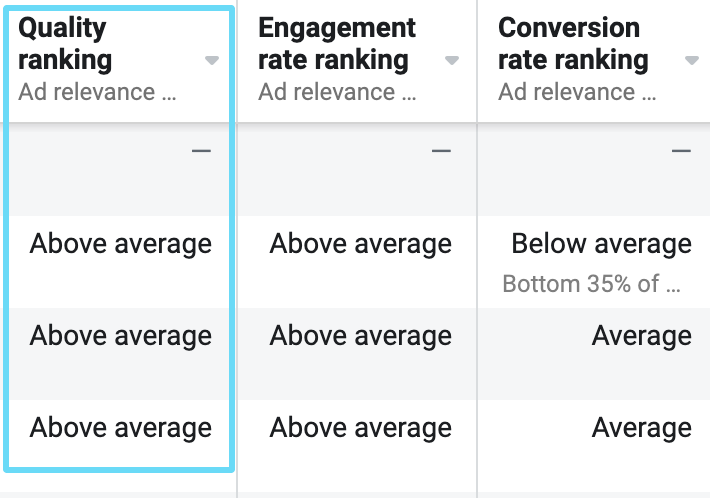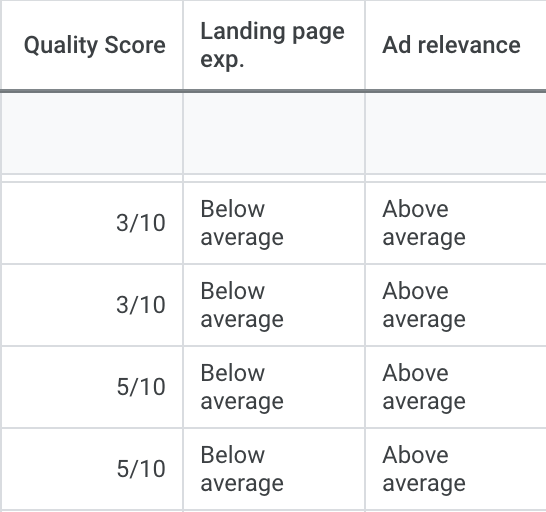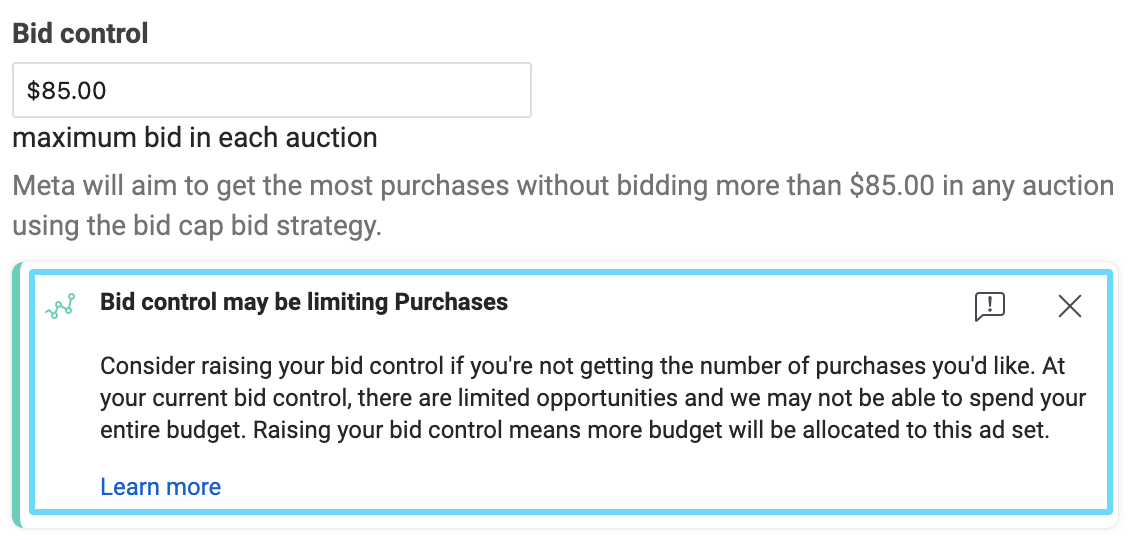PPC marketing brings in two times the amount of visitors to your website as SEO does.
And with all those visitors we’re driving, we’d expect exponentially more conversions, sales, and profit, right?
But if that’s just not happening or not happening at the scale you need, then the next best course of action to take is a PPC audit.
Now, to some, “audit” is a very shudder-worthy term. It’s often synonymous with “hours and hours digging through every PPC account to find the roots of your problems.”
But it doesn’t have to be that way. PPC audits will take you some time, but if they’re taking you all day, it’s probably because
- you’re not sure what to look for
- you’re looking for the wrong things
- you’re overcomplicating it
Haphazard audits with no structure are a one-way ticket to eye strains and fruitless findings.
So that’s where we come in—we’re going to help you avoid those things.
This article’s going to share five easy, structured steps to a fruitful audit that actually benefits your account (and your eyes will thank you, too).
So, let’s get auditing.
Get brand new PPC strategies straight to your inbox every week. 23,739 people already are!
What is a PPC audit?
Simply put, a PPC audit is the process of holistically looking through your PPC accounts and platform mix to find areas of improvement.
Whether you’re trying to develop new PPC strategies to improve, your accounts are sinking and you’re not sure why, or you’re an agency trying to figure out where to start with a new client, a PPC audit is the way to go.
Why are PPC account audits important?
When you’re doing PPC management every day, completing optimizations, crafting strategies, and building new campaigns, it can sometimes be difficult to see the big picture.
PPC audits are your chance to take a step back and evaluate the health of your advertising efforts as a whole.
You might find out that one campaign has been holding everything back. Or you might decide that, given everything you’ve looked at, a specific PPC platform you’re currently using isn’t a wise investment.
Ultimately, PPC audits help you find places where you can improve your accounts as a whole and push for better ROI from your PPC advertising.
That said, let’s get into those five super easy steps to a successful PPC audit.
The simplest 5-step PPC audit checklist
As we said, auditing doesn’t have to be super complicated. If you want to get into the real nitty-gritty details of your campaign, go for it, but it usually ends up being a waste of time.
That’s because the things that will often make the most significant impact on your campaign performance (typically) aren’t hidden deep in the cracks.
They’ve been in front of you the whole time…but again, when you’re knee-deep in your accounts every day, they can be surprisingly hard to see (especially if your accounts are big and complicated).
So, rather than pulling out your hair to find a drop of secret sauce with your audits, take a step back and look at the big picture.
Ready to start cleaning up your PPC strategy at a higher level?
1. Identify areas of bleed
This is one of the most important and yet least-seen audit steps you can take—looking for what’s bleeding.
Bleeding money, that is.
In advertising, areas of bleed are components that spend a big chunk of your advertising budget without giving you anything back in the way of conversions or sales.
Too often, advertisers allow bleed to continue because of what they think they should be advertising on, rather than trimming down to what’s actually working.
So, what’re usually the biggest causes of bleed in PPC accounts?
Non-performers
Non-performers can be anything from whole ad campaigns to individual ads that drain your budget and prove fruitless.
If you see that a specific campaign, ad group, ad set, or ad spends a fat wad of cash but never converts, it’s time to consider revamping it or pausing altogether.
The same goes for anything that gets low conversions and CPAs that are way above your goal.
Keep in mind: As much as you want to fix all non-performers and turn all searchers into conversions, keep track of the time you spend doing it. Eventually, you might have to accept that after a certain point, it’s just wasted time.
Irrelevancy
Irrelevancies are like hidden cancer in paid search campaigns. Even if you’re sometimes using exact match keywords, your keywords will inevitably pull in irrelevant search terms.
So take a look at your search terms report, whether in a Google Ads account or Microsoft Ads (formerly Bing Ads) account, and see how far your search queries are from your keyword.
Maybe it’s time to choose a different keyword match type (steer clear of broad match), add to your negative keyword list, or pause that keyword altogether.
And, by the way, is your ad group structure haphazard? SKAGs can help prevent irrelevancy, too.
Self-competition
A lot of advertisers compete with themselves inadvertently. It happens in paid social accounts more often, but you’ll still see it in paid search.
Self-competition can be having the same keyword targeting the same geo, running in different campaigns simultaneously. It can also look like two ad sets targeting audiences containing many of the same audience members.

Cross-check your keywords and audiences to ensure you’re not making your own advertising more expensive. And with audiences, make sure you’re excluding your retargeting (AKA remarketing) audiences from any non-retargeting campaigns.
Pro tip: Often, the biggest thing that causes inadvertent self-competition is, again, poor account structure (especially in Facebook). So get cleaned up, organize, and know where all your audiences and keywords are.
Platform mix
Not every PPC platform will be a golden child for your business. For instance, we’ve had plenty of clients who—after a ton of effort—just couldn’t seem to do well on Facebook.
Don’t worry; this happens all the time.
The important thing is to get a bird’s-eye view of how each platform in your mix is doing.
And you have to remember not to get attached to a poor-performing platform just because you want your ads there.
If it’s only been a waste of time and money, it’s time to try another platform.
Not sure which one to try? We wrote an entire blog covering the most popular PPC platforms to help you decide.
2. Triple-check your conversion tracking
If you’re not tracking conversions, or if your tracking is wonky, then how do you know what you’re getting out of your advertising?
The point is, you don’t know.
But you absolutely should know.
A re-review of your conversion tracking is always worth the effort. Tags (the tracking code that signals a conversion) can break, websites can change—any number of things can throw off your tracking.
Or, of course, there’s always the possibility your tags were never right in the first place. We see that a lot.
If you’re using Google Tag Manager (GTM) to install conversion tags (which we recommend), then use GTM’s preview and debug mode to check that your conversion events fire one time when you submit a test conversion on your site (lead, sale, etc.).
If you’re using Google Analytics to track conversions and import conversion actions into Google Ads, check that your conversions are set up correctly there, too.
And if you’re in lead generation, make sure your conversion event only fires once per unique user (because duplicate leads don’t help anyone).
3. Evaluate the “where” and “when”
Where and when your ads show are often campaign settings that are overlooked during regular PPC optimizations.
I can’t speak for all advertisers, but to me, it seems like we’re prone to overlook them because they feel like integral building blocks in our accounts—settings that aren’t meant to be changed.
But the “where” and “when” of our ad accounts are absolutely meant to change, and leaving them as-is can cause a lot of waste.
Geotargeting
Your geotargeting is where (geographically) your ads are shown. All PPC platforms can target specific locations across the globe where you want your ads to appear.
So here’s the question of the hour: are the geolocations you’re targeting now all performing well for you?
Or have you been targeting, say, Australia for the last year only to get two total conversions from there in all that time?
Dayparting
When our ads show is extremely important. I’ve met many clients in my time that insist they want their ads live 24/7 because they want their ads ready for anyone, anytime.
24/7 advertising might work for some businesses that see sales at all hours of the day or night, but it doesn’t work for everyone.
Dayparting is the act of limiting your advertising to the times that perform the best or matter the most.
What hours of the day or days of the week perform the best over the last 30-60 days? Discover and focus on those.

4. Review your metrics
Not all PPC metrics are created equal. That’s something you’ll see in a lot of our content.
When you’re auditing your accounts, you want to hone in on the metrics that are actually important first. Do this before you start digging into the metrics that don’t directly make a difference.
VIMs (very important metrics)
If the metrics you’re prioritizing aren’t at least one of the ones on this list, you need to shift your attention:
- conversion volume
- cost per conversion (CPA, also known as cost per acquisition)
- ROAS (return on ad spend) (for eCommerce)
- conversion value (for eCommerce)
- conversion rate
The one thing they have in common? They all account for actions that make a difference to your business: leads, sales, etc.
Where are your conversions coming from? Where aren’t they coming from (and why)? Which ads have the best ROAS or CPA? You get the picture.
Use these metrics as the basis for the directions you take and the decisions you make in your accounts.
Lesser metrics
Now, you can certainly still look at lesser metrics like these:
- CPC (cost-per-click)
- CTR (click-through rate)
- impression share
But you should do so secondarily, and you should do so through the lens of your important metrics.
Did your conversion rates drop during the same time frame that your CPC went up? If so, it’s possible that high CPC is causing problems with your conversions.
But if your CPC went up while your conversions stayed the same or got better, then laser-focusing on CPC probably won’t help improve your ultimate goal (conversions). In that case, you shouldn’t be wasting your time auditing CPC.
Quality metrics
Quality metrics can also be considered lesser metrics because a better quality ranking or score doesn’t always lead to more conversions.
But if your conversions are suffering and your Quality Score (paid search) or quality ranking (Facebook) is in the pits, it’s worth looking into.
A low-quality ranking on Facebook can mean people are annoyed by your ads because they see them too much. It could also mean that your ads are irrelevant to them, and they’re hiding the ads. (This means Facebook’s algorithms have put you in the cone of shame.)

This can quickly give you a potential place to start improving. You might try more ad rotations and/or fine-tuning your audiences.
In paid search, a low Quality Score can lead to low ad rank, which certainly can hurt your conversions. A couple of ways to fix that are improving ad relevance or landing page experience.

5. Are you setting and forgetting?
When marketers have a lot of PPC campaigns to manage, setting and forgetting becomes a problem.
When you get your account going and then forget about it for an extended time, you’ll see steady declines in ad performance.
This is because you’re not keeping up with the frequent (and many) changes these platforms, your competition, and your target audiences go through.
Setting and forgetting have possibly the most adverse effect on your bids, your budgets, and your ads—three things that many digital marketers tend to set and then (wrongly) assume will keep the account going without maintenance.
Your bids
If you’re using an automated bid strategy, you might not need to worry about your bids very much because your platform is adjusting them for you in real-time. (Though, you should still look at bid adjustments in paid search.)
But if you’re using manual bidding or a manual bid cap strategy, you need to regularly monitor how your bids are keeping up with the competition.
For instance, in Google Ads and Microsoft Ads, you can see keyword-by-keyword how your bids compare to the bare minimum bid needed to meet the first page of Google Search Network or Bing Search Network results.

And in Facebook Ads, you can see if your bid cap is up to par inside the ad set.

Your budgets
Every advertising platform wants you to spend more money. So, when the platforms tell us we’re limited by budget, we need to take that with a grain of salt. (Most often, the budgets they recommend to not be “limited” are completely unreasonable.)
But you do still need to keep an eye on this: how much money are you spending (daily or lifetime) on your best-performing campaigns? How much on your worst?
Budget maintenance means moving ad dollars around to the areas that bring in the most cheddar for your business.
And this will change often, so you need to be on top of it.
Your ads
How ancient are your text ads, image ads, and social media ads?
Sometimes, you’ll have ads that are constant winners, and it’s okay to keep those as long as your audiences aren’t growing tired of seeing them repeatedly. (That’s more so a problem on Facebook.)
But my point is: when was the last time you rotated in new ad copy or images? Or when was the last time you tried new ad extensions?
What about the last ad test (A/B test) you ran, period?
If your answer is “I don’t know,” or some time over a month ago, then you’re falling behind with your ads—and that’s definitely something you need to get turned around if you want peak performance accounts.
Get your hands dirty and start your PPC audit
Auditing doesn’t have to be complicated. It doesn’t have to mean you spend hours and hours trying to flush out a problem the size of a grain of sand.
In just five steps, you learned how to expose the biggest problem-causers in PPC ad campaigns—ones that are right there but often overlooked when we’re in our accounts every day.
Now, it’s time to get your audit done and push your PPC performance to the max.
Once you’ve taken care of your audit, you might find that your next step to scale is by adding new keywords, and our article on keyword research tools can help you out with just that.